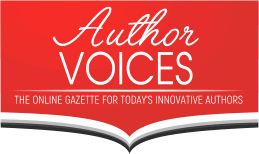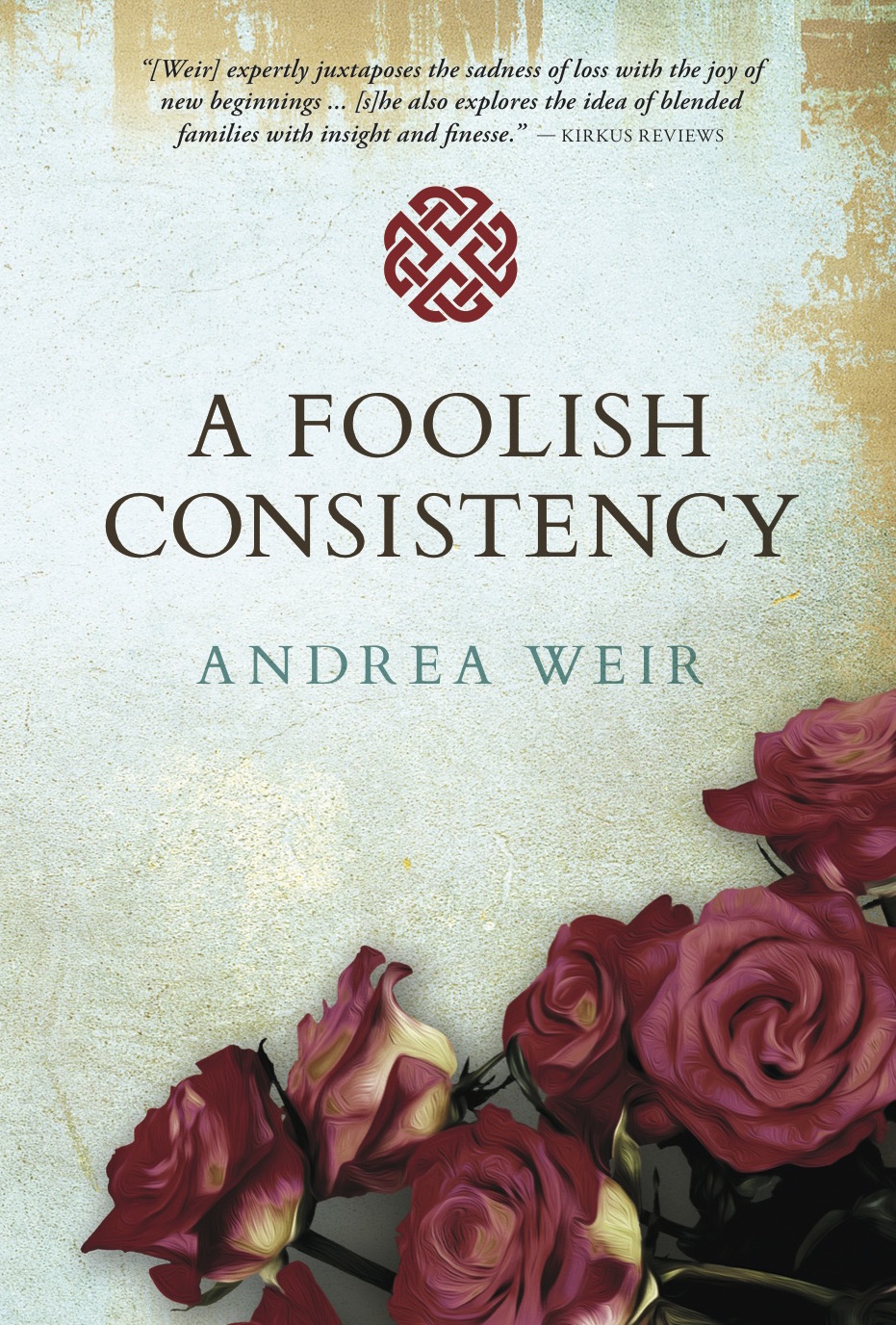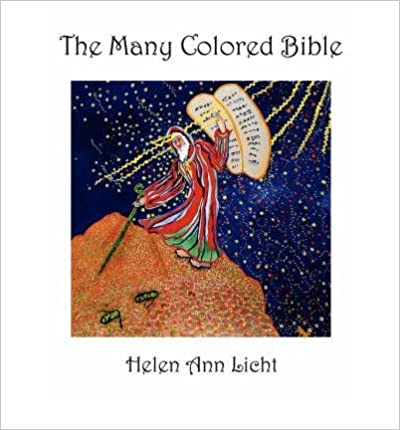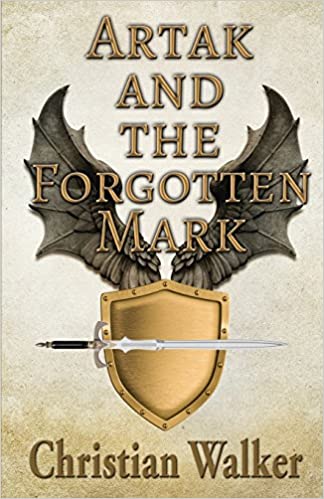Interview with Andrea Weir
Author of A Foolish Consistency
Where are you from originally and where do you reside now?
I was born in Boston and spent my early childhood in Framingham, Massachusetts. My family moved to the San Francisco Bay Area when I was in elementary school and and I have lived in California ever since. My current home is in Santa Barbara.
If you currently reside somewhere besides where you were born, what’s the story that lead from there to here?
As I said, my family moved to the Bay Area when I was in elementary school. I came to Santa Barbara to attend the University of California here. I graduated with a degree in English literature. I was so enthralled with the area — I live within walking distance of the ocean — I decided to stay.
I have worked as a professional writer ever since, including 15 years as a freelance journalist.
What made you decide to write and publish your first book?
I’ve been writing in one capacity or another for as long as I can remember. I began keeping a journal when I was 11 years old, and at the same time was writing short dramatic pieces. So, fast forward a few decades. I always wanted to write a novel, but I never hit upon a topic that really kept my attention. And then it was suggested to me that I write a nonfiction book about the experience of losing my mother (she died when I was very young). I am not a mental health professional, though, and I didn’t feel I had the requisite expertise. Still, I was intrigued by the idea so I decided to pursue it through fiction.
How would you describe your books to first time readers?
I write contemporary literary fiction that opens a window on universal human experiences and gives readers the opportunity to see the many different ways of navigating the various trials and challenges we all face. And perhaps finding new ways of thinking about people and the motivations behind their actions. I don’t work from an outline and I have no idea how the plot will unfold or how the book is going to end until it does. I tend to identify a topic or a theme and then build a story line around it. In that way it develops entirely organically.
Who do you feel is most likely to connect with the topics you write about?
Love and loss, joy and redemption are common themes in my work, and I think anyone who has experienced any of these will relate to the topics I explore in my books. My novel “A Foolish Consistency,” for example, focuses on a brother and sister — 11 and 13, respectively — who have lost their mother and how her death impacts their lives. We gain an understanding of their situation through the main female character, Callie, who has experienced the same loss. She not only explains the emotion and psychology behind the children’s actions, but she also provides insight into how this particular childhood experience informed who she became as an adult. Throughout the novel, for example, Callie refers back to her own loss and how that thread of that experience is woven throughout the tapestry of her entire life.
And, of course, while the children lost their other, it is also the case that parents lost a child and siblings lost a sister. Their grief is different from that of the children, as are their responsive actions.
I am currently working on a sequel to “A Foolish Consistency” that looks at issues related to mental illness among adolescents.
What unexpected or surprising thing did you learn during the process of writing and publishing?
One thing I found very surprising during the writing process was how characters introduced themselves to me fully formed and with names. I didn’t assign physical or psychological qualities to them. I drew on what they revealed about themselves. I know that sounds strange, but it was as though they simply walked into the room and said, “Here I am, what do you want to know?”
And because I didn’t have an outline, everything was new. Each day I sat down or write and wondered, “What’s going to happen today?”
Also, I learned that publishing is a hugely complicated process with many paths and directions.
If you could, what advice would you give to past self yourself before embarking on this journey?
I would say: Trust your instincts. Know that you have something important and worthwhile to say. But also know that not every sentence will be brilliant. Write it anyway. Write every day. You can go back and make your work brilliant, but only if you get it down on paper — or on the computer screen — first. And don’t think you always have to take huge, suffocating bites. Write a poem. Write a piece of flash fiction. Write a short story. Just write.
How many people would you ideally like to reach with your books?
The more readers the better, of course! I don’t have a specific number in mind, but ideally I’d like to reach as many people as I can for whom the themes will resonate.
What has been the biggest challenge and frustration during the process to date?
Marketing is always a challenge. My book has been a finalist in five book competitions and a first-place winner in another, so it has been well received critically. And the reviews have been excellent overall. But the marketing process — ushering it into the world and finding means by which people continue to take notice — is constant and long term.
What’s your biggest strengths when it comes to book a) writing, b) publishing and c) marketing?
In writing, my greatest strength lies in creating realistic, compelling characters and developing lively, interesting dialogue.
My greatest strength in publishing is being patient through the process, staying true to my goals, and believing in myself. Rejection and thanks-but-no-thanks is part of the publishing process and it’s really important to believe in the value of your work. At the same time, though, it’s important to be open to suggestions and ideas from people whose opinions and experience you trust.
My greatest strength in marketing is knowing what my weaknesses are and hiring someone to manage it for me (social media, my author website — www.andrea-weir.com) and other marketing initiatives).
What’s your biggest weakness when it comes to book a) writing, b) publishing and c) marketing?
In writing, my greatest weakness is in making time to write every day. It’s really easy, when I’m not on deadline, to let other things get in the way. I have to remind myself all the time that this should be my priority.
Weakness in publishing: Accepting length requirements and word counts. It’s so hard to cut out big swaths of text or to adjust story lines for the sake of length.
And in marketing: Being vigilant and ferreting out opportunities to spotlight my work.
When do you think you will you write your next book?
I have two novels in the works right now. One is a sequel to “A Foolish Consistency,” as I mentioned above, with the working title “One Down, Three Across”; the other has to do with the idea of time travel and returning to an earlier period in one’s own life. Someone asked me the question, “If you could sit down on a park bench with anyone and have a conversation, who would it be?” The answer, of course, would be my mother. And from their the plot began to develop. The working title is “A Repository of Days.”
Are you self published or did you use a hybrid publisher, or a traditional publisher?
I used a hybrid publisher — Cedar Forge Press. It allowed me to have more freedom in the process and in the final product. However, the press changed ownership while my novel was in the publishing process. That proved to be a bit problematic.
FEATURED AUTHORS
Worrying if I was telling too many secrets Leaving out so much.
Keep Reading »Writing is an arduous task even when one has all ideas clear in the read more
Keep Reading »Write the book, start marketing (letting people know of it) before you finish.
Keep Reading »










